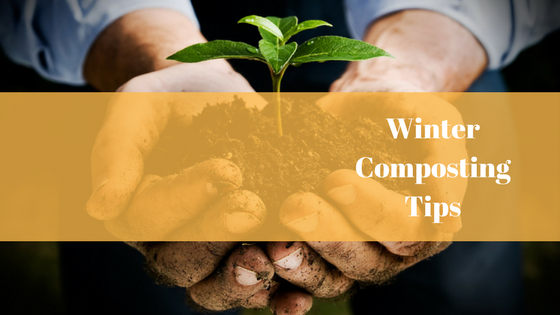Solar Power Blog

Winter Composting Tips
Composting During Winter
Composting can be pretty easy to go about during summer or autumn, but what happens when the winter comes? The freezing weather condition can make it a little more difficult to produce or store compost during winter. The benefits of keeping sustainable products in form of active compost during the winter include fertilizer for spring planting and can act as a source of heat for greenhouse. As winter approaches, some people might decide to send their scraps to a municipal composting facility. Some others might create some kind of indoor shelter to help with keeping the compost warm. Amazingly, there are tips and techniques to go by for storing your compost during the winter season, this all boils down to preparing beforehand.
Winter Composting Preparations
-
Add more browns: Add more brown dried leaves to the available green matter produced from the kitchen. Green leaves add oxygen to the pile, layer these with dirt in cover up with a plastic. You can use stones to hold the cover in place. This compost will be able to last for as long as 4 to 6 months, and will make a great organic compost for the soil.
- Keep the Compost Warm: Keeping compost warm even during the winter allows the microbes stay active. Harvest the already made compost during the fall so that there will be enough room for new fresh ones in winter season. Some options are to spread it over the lawn or garden or use it on house flowers and growing plants. It is advisable to find the warmest part of your environment to put your bin during the winter. You should also put some dried leaves at the bottom, followed by the active compost materials, then cover up with some more brown leaves. This keeps the active compost intact till when you need them.
- Control Exposure to Moisture: Try to avoid moisture from coming in contact with your compost. Keep the compost piles properly covered so that it doesn’t rain on them. Sometimes even if the compost materials are sealed, it might be difficult to keep water away because the carbon materials might not be enough to absorb water from the nitrogen materials like kitchen waste. Add more carbon materials like dried leaves and possibly open holes in the Composter. Here are some methods of composting:
- Use of Compost Tumblers: Compost tumblers are very efficient year round. Compost tumblers are bins that are supported so that can be spun to allow mixing of the compost. There are vents or holes on the tumbler to allow aeration. The inner part is of a dark color and helps to keep the tumbler warm enough to preserve the compost. Tumblers help to keep the odor of the compost from polluting the environment. They usually have different compartments to allow newer composts in a different compartment, they are also usually elevated from the ground, making it easy to use and one of the beat methods during winter. Check out compost tumblers and other composting materials here.
- Use of Compost Bins: Compost bins are usually opened at the bottom, so that materials that have been added from the top can be removed through the bottom of the bin. Put a lot of dry leaves and straws whenever you add food waste. Compost bins come in small sizes are ideal in an environment where one or two people are composting. Using this method during the winter can have some disadvantages. For example, the fact that the bottom is open means that some moisture can get in and some can spill out and attract rats and other kinds of rodents. However stuffing it with enough dry leaves and straw can still keep compost useful till the spring.
- Insulation: You can insulate your compost using leaves, straws or cardboard to cover your compost. You can move your tumbler into a garage or any shelter. You can use straw base around a digester system. The biggest problem during the winter is not the snow but the wind chill. Look for ways to keep your compost away from the wind-chill by locating it near walls or fences.
- Indoor Composting: You can deal with waste during the winter without having to face the harshness of the snow. Try an insulated sealed composter and keep it resting in the garage. If it has a good balance of nitrogen and oxygen, it will not give out fumes. You can also use warm composting also known as vermiculture, these can also be kept in the garage or outdoor shelters.


Stephen kruah says...
Dear sir,iam interested in your company,iam a electrician please add me to your company,my country liberia just came from war not too long ago so will like for your solar company to come to liberia,more people need electricity right now in liberia.thank you very much waiting to hear from you soon.
On January 29, 2018